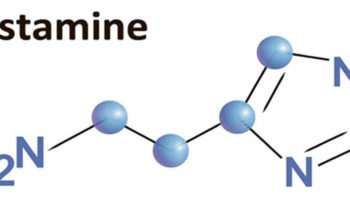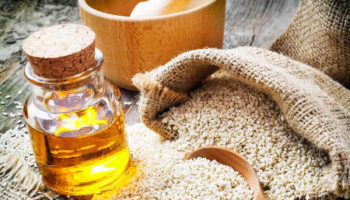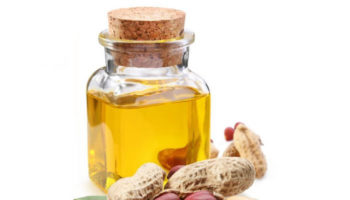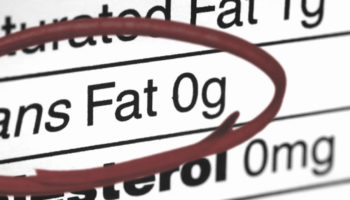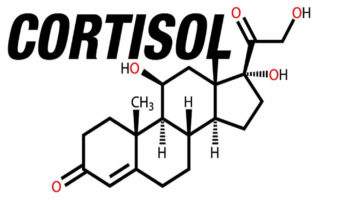Is popcorn healthy
Popcorn or pop corn is a whole-grain food/snack that is included among foods recommended in the Dietary Guidelines for Americans to increase whole-grain consumption. A 100 gram air popped popcorn (no added salt or sugar) has 14.5 gram of dietary fiber (~50% daily recommended fiber intake) and the energy density of the 94% fat free popcorn (3.87 kcal/g) is 31% lower than that of potato chips (5.4 kcal/g).
Mean intake among consumers of popcorn was 38.8 g/day. Compared with non-consumers, popcorn consumers had approximately 250% higher intake of whole grains (2.5 vs 0.70 servings/day) and approximately 22% higher intake of fiber (18.1 vs 14.9 g/day) 1. Small but significant differences were also observed for intake of carbohydrate, magnesium (higher intake in popcorn consumers), protein, niacin, and folate (lower intake in popcorn consumers). In addition, popcorn consumers had a greater intake of total grains and consumed fewer meat servings. Popcorn consumption was associated with increased intake of whole grains, dietary fiber, and certain other nutrients.
Popcorn is the 10th ranked savory snack in the U.S., eaten approximately nine times per person annually 2 and has been shown to have a beneficial association with whole grain and fiber intake among those who consume it 1.
Popcorn nutrition facts
Air-popped popcorn is naturally high in dietary fiber and antioxidants, low in calories and fat, and free of sugar and sodium. This can make it an attractive snack to people with dietary restrictions on the intake of calories, fat or sodium. For the sake of flavor, however, large amounts of fat, sugar, and sodium are often added to prepared popcorn, which can quickly convert it to a very poor choice for those on restricted diets.
Table 1. Popcorn, air-popped nutrition facts
| Nutrient | Unit | Value per 100 g | |||||||||
| Approximates | |||||||||||
| Water | g | 3.32 | |||||||||
| Energy | kcal | 387 | |||||||||
| Energy | kJ | 1618 | |||||||||
| Protein | g | 12.94 | |||||||||
| Total lipid (fat) | g | 4.54 | |||||||||
| Ash | g | 1.42 | |||||||||
| Carbohydrate, by difference | g | 77.78 | |||||||||
| Fiber, total dietary | g | 14.5 | |||||||||
| Sugars, total | g | 0.87 | |||||||||
| Sucrose | g | 0.72 | |||||||||
| Glucose (dextrose) | g | 0.07 | |||||||||
| Fructose | g | 0.07 | |||||||||
| Lactose | g | 0 | |||||||||
| Maltose | g | 0 | |||||||||
| Galactose | g | 0 | |||||||||
| Starch | g | 54.4 | |||||||||
| Minerals | |||||||||||
| Calcium, Ca | mg | 7 | |||||||||
| Iron, Fe | mg | 3.19 | |||||||||
| Magnesium, Mg | mg | 144 | |||||||||
| Phosphorus, P | mg | 358 | |||||||||
| Potassium, K | mg | 329 | |||||||||
| Sodium, Na | mg | 8 | |||||||||
| Zinc, Zn | mg | 3.08 | |||||||||
| Copper, Cu | mg | 0.262 | |||||||||
| Manganese, Mn | mg | 1.113 | |||||||||
| Selenium, Se | µg | 0 | |||||||||
| Vitamins | |||||||||||
| Vitamin C, total ascorbic acid | mg | 0 | |||||||||
| Thiamin | mg | 0.104 | |||||||||
| Riboflavin | mg | 0.083 | |||||||||
| Niacin | mg | 2.308 | |||||||||
| Pantothenic acid | mg | 0.51 | |||||||||
| Vitamin B-6 | mg | 0.157 | |||||||||
| Folate, total | µg | 31 | |||||||||
| Folic acid | µg | 0 | |||||||||
| Folate, food | µg | 31 | |||||||||
| Folate, DFE | µg | 31 | |||||||||
| Choline, total | mg | 21.2 | |||||||||
| Betaine | mg | 0.8 | |||||||||
| Vitamin B-12 | µg | 0 | |||||||||
| Vitamin B-12, added | µg | 0 | |||||||||
| Vitamin A, RAE | µg | 10 | |||||||||
| Retinol | µg | 0 | |||||||||
| Carotene, beta | µg | 89 | |||||||||
| Carotene, alpha | µg | 58 | |||||||||
| Cryptoxanthin, beta | µg | 0 | |||||||||
| Vitamin A, IU | IU | 196 | |||||||||
| Lycopene | µg | 0 | |||||||||
| Lutein + zeaxanthin | µg | 1450 | |||||||||
| Vitamin E (alpha-tocopherol) | mg | 0.29 | |||||||||
| Vitamin E, added | mg | 0 | |||||||||
| Vitamin D (D2 + D3) | µg | 0 | |||||||||
| Vitamin D | IU | 0 | |||||||||
| Vitamin K (phylloquinone) | µg | 1.2 | |||||||||
| Lipids | |||||||||||
| Fatty acids, total saturated | g | 0.637 | |||||||||
| 04:00:00 | g | 0 | |||||||||
| 06:00:00 | g | 0 | |||||||||
| 08:00:00 | g | 0 | |||||||||
| 10:0 | g | 0 | |||||||||
| 12:0 | g | 0 | |||||||||
| 14:0 | g | 0 | |||||||||
| 15:0 | g | 0 | |||||||||
| 16:0 | g | 0.536 | |||||||||
| 17:0 | g | 0 | |||||||||
| 18:0 | g | 0.076 | |||||||||
| 20:0 | g | 0.016 | |||||||||
| 22:0 | g | 0.008 | |||||||||
| Fatty acids, total monounsaturated | g | 0.95 | |||||||||
| 14:1 | g | 0 | |||||||||
| 15:1 | g | 0 | |||||||||
| 16:1 undifferentiated | g | 0.005 | |||||||||
| 17:1 | g | 0 | |||||||||
| 18:1 undifferentiated | g | 0.931 | |||||||||
| 20:1 | g | 0.014 | |||||||||
| 22:1 undifferentiated | g | 0 | |||||||||
| Fatty acids, total polyunsaturated | g | 2.318 | |||||||||
| 18:2 undifferentiated | g | 2.263 | |||||||||
| 18:3 undifferentiated | g | 0.054 | |||||||||
| 18:3 n-6 c,c,c | g | 0 | |||||||||
| 18:04:00 | g | 0 | |||||||||
| 20:2 n-6 c,c | g | 0 | |||||||||
| 20:3 undifferentiated | g | 0 | |||||||||
| 20:4 undifferentiated | g | 0 | |||||||||
| 20:5 n-3 (EPA) | g | 0 | |||||||||
| 22:5 n-3 (DPA) | g | 0 | |||||||||
| 22:6 n-3 (DHA) | g | 0 | |||||||||
| Cholesterol | mg | 0 | |||||||||
| Amino Acids | |||||||||||
| Tryptophan | g | 0.085 | |||||||||
| Threonine | g | 0.452 | |||||||||
| Isoleucine | g | 0.431 | |||||||||
| Leucine | g | 1.473 | |||||||||
| Lysine | g | 0.338 | |||||||||
| Methionine | g | 0.252 | |||||||||
| Cystine | g | 0.217 | |||||||||
| Phenylalanine | g | 0.59 | |||||||||
| Tyrosine | g | 0.488 | |||||||||
| Valine | g | 0.607 | |||||||||
| Arginine | g | 0.598 | |||||||||
| Histidine | g | 0.367 | |||||||||
| Alanine | g | 0.9 | |||||||||
| Aspartic acid | g | 0.836 | |||||||||
| Glutamic acid | g | 2.255 | |||||||||
| Glycine | g | 0.492 | |||||||||
| Proline | g | 1.048 | |||||||||
| Serine | g | 0.571 | |||||||||
| Other | |||||||||||
| Alcohol, ethyl | g | 0 | |||||||||
| Caffeine | mg | 0 | |||||||||
| Theobromine | mg | 0 | |||||||||
Popcorn diet
Population data show that individuals who consume popcorn, compared to those who do not, have significantly greater intakes of whole grain, fiber, and magnesium 1. In this study 4, low fat popcorn was shown to exert greater short-term satiety than potato chips. The satiety attribute, combined with popcorn’s other favorable characteristics of being a whole grain, high fiber, nutrient dense snack, support popcorn as beneficial snack choice in the context of healthy weight management. Several attributes of popcorn may contribute to its satiating effect at a relatively low energy level, for example, its low energy density 5. The energy density of the 94% fat free popcorn (3.7 kcal/g) is 31% lower than that of potato chips (5.4 kcal/g). Volume is likely another satiety-promoting quality of popcorn. Starch expansion during the popping process produces a foam-like matrix with a large surface-area to mass ratio. This trait, combined with popcorn’s irregular shape, leads to a food with a high volume per unit weight. High volume, due to incorporating air into food and due to irregular shape, has been shown to increase satiety 6, 7. Additionally, the proportionality of macronutrients may contribute to satiety, as prior research has shown that fat is less satiating than carbohydrate or protein 8.
Snacks that offer relatively higher levels of satiety may be beneficial for weight management provided the snack does not contribute to greater overall energy intake. One of the primary issues that has been identified in relationship to snacking, satiety and energy intake is the inability to fully compensate for the energy consumed as snacks 9. Evidence shows that snacks consumed in a non-hungry state do not impact satiety or reduce energy intake at the subsequent meals 10 and cross-sectional and longitudinal studies suggest that snacking is associated with weight gain and or obesity 11. Energy dense, highly palatable foods such as cookies, cakes, desserts, and candies are associated with higher energy intakes in obese adults 12. In contrast, compensation for popcorn resulting in overall energy intake not different from having no snack. This finding is supported by previous population-based research that shows popcorn consumption is not related to increased body mass index 1. In addition, longitudinal 13 and weight loss interventions 14 indicate that snacking has a neutral or positive effect on energy intake or body mass index. For example, provision of up to three snacks daily as part a weight loss diet had a neutral effect on weight change 14, 15.
- Popcorn consumption and dietary and physiological parameters of US children and adults: analysis of the National Health and Nutrition Examination Survey (NHANES) 1999-2002 dietary survey data. Grandjean AC, Fulgoni VL 3rd, Reimers KJ, Agarwal S. J Am Diet Assoc. 2008 May; 108(5):853-6. https://www.ncbi.nlm.nih.gov/pubmed/18442510/[↩][↩][↩][↩]
- NPD Group. The NPD group national eating trends report to ConAgra Foods, Inc. 2009.[↩]
- United States Department of Agriculture Agricultural Research Service. National Nutrient Database for Standard Reference Release 28. https://ndb.nal.usda.gov/ndb/search/list[↩]
- Nguyen V, Cooper L, Lowndes J, et al. Popcorn is more satiating than potato chips in normal-weight adults. Nutrition Journal. 2012;11:71. doi:10.1186/1475-2891-11-71. https://www.ncbi.nlm.nih.gov/pmc/articles/PMC3502142/[↩]
- Water incorporated into a food but not served with a food decreases energy intake in lean women. Rolls BJ, Bell EA, Thorwart ML. Am J Clin Nutr. 1999 Oct; 70(4):448-55. http://ajcn.nutrition.org/content/70/4/448.long[↩]
- Incorporation of air into a snack food reduces energy intake. Osterholt KM, Roe LS, Rolls BJ. Appetite. 2007 May; 48(3):351-8. https://www.ncbi.nlm.nih.gov/pmc/articles/PMC2129127[↩]
- Energy density of foods affects energy intake across multiple levels of fat content in lean and obese women. Bell EA, Rolls BJ. Am J Clin Nutr. 2001 Jun; 73(6):1010-8. http://ajcn.nutrition.org/content/73/6/1010.long[↩]
- Fat, carbohydrate, and the regulation of energy intake. Rolls BJ, Hammer VA. Am J Clin Nutr. 1995 Nov; 62(5 Suppl):1086S-1095S. https://www.ncbi.nlm.nih.gov/pubmed/7484926/[↩]
- Effects of snacks on energy intake: an evolutionary perspective. de Graaf C. Appetite. 2006 Jul; 47(1):18-23. https://www.ncbi.nlm.nih.gov/pubmed/16675059/[↩]
- The role of snacking in energy balance: a biobehavioral approach. Chapelot D. J Nutr. 2011 Jan; 141(1):158-62. http://jn.nutrition.org/content/141/1/158.long[↩]
- Prospective study of self-reported usual snacking and weight gain in a Mediterranean cohort: the SUN project. Bes-Rastrollo M, Sanchez-Villegas A, Basterra-Gortari FJ, Nunez-Cordoba JM, Toledo E, Serrano-Martinez M. Clin Nutr. 2010 Jun; 29(3):323-30. https://www.ncbi.nlm.nih.gov/pubmed/19748710/[↩]
- Snacking frequency in relation to energy intake and food choices in obese men and women compared to a reference population. Bertéus Forslund H, Torgerson JS, Sjöström L, Lindroos AK. Int J Obes (Lond). 2005 Jun; 29(6):711-9. https://www.ncbi.nlm.nih.gov/pubmed/15809664[↩]
- The effect of eating frequency on appetite control and food intake: brief synopsis of controlled feeding studies. Leidy HJ, Campbell WW. J Nutr. 2011 Jan; 141(1):154-7. http://jn.nutrition.org/content/141/1/154.long[↩]
- Should snacks be recommended in obesity treatment? A 1-year randomized clinical trial. Bertéus Forslund H, Klingström S, Hagberg H, Löndahl M, Torgerson JS, Lindroos AK. Eur J Clin Nutr. 2008 Nov; 62(11):1308-17. https://www.nature.com/articles/1602860[↩][↩]
- Effect of a post-dinner snack and partial meal replacement program on weight loss. Vander Wal JS, Waller SM, Klurfeld DM, McBurney MI, Cho S, Kapila M, Dhurandhar NV. Int J Food Sci Nutr. 2006 Feb-Mar; 57(1-2):97-106. https://www.ncbi.nlm.nih.gov/pubmed/16849118/[↩]

